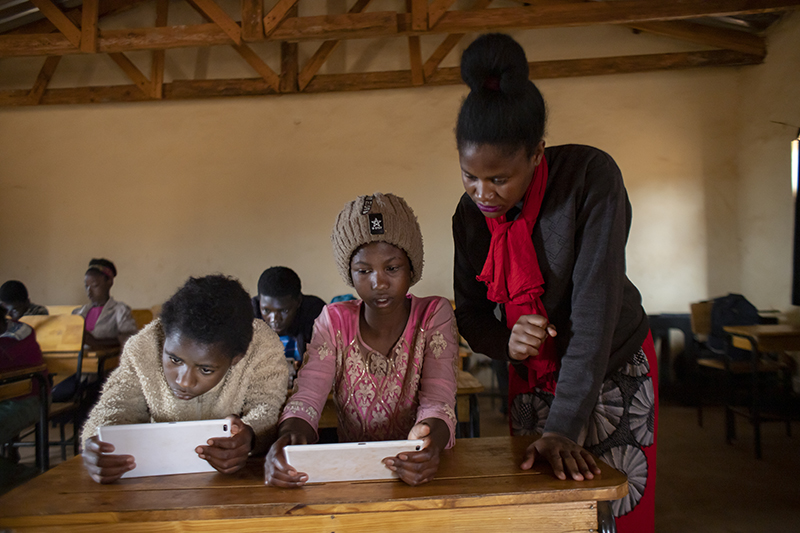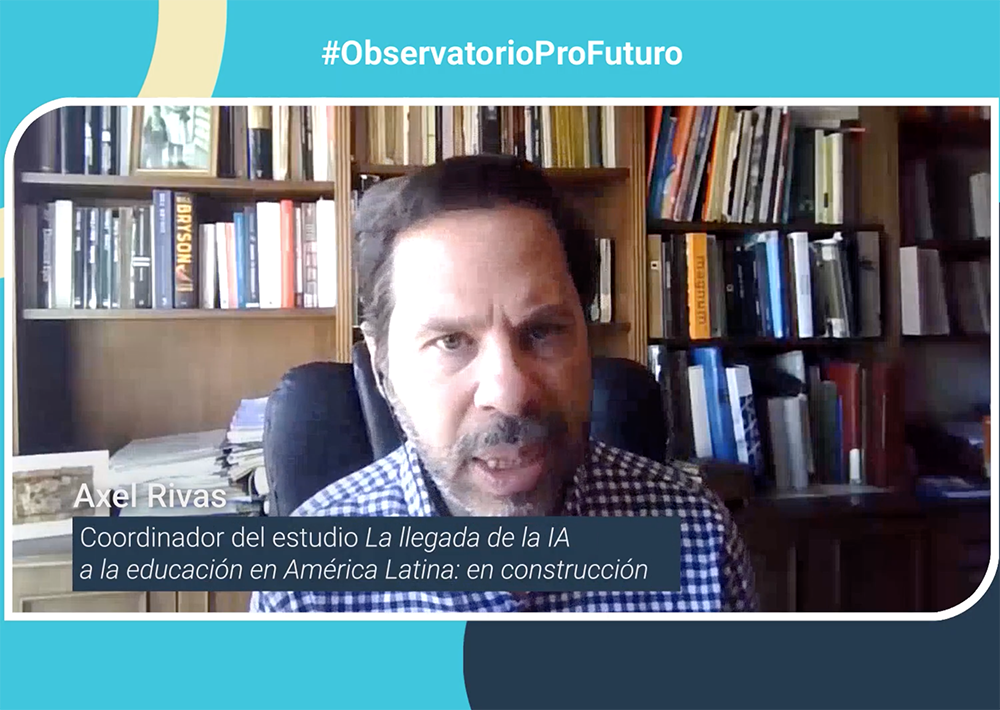She was called upon to change education in her country, but Folawe Omikunle came to the world of education “by accident”, after finishing her studies in International Relations and Diplomacy. However, a little girl crossed her path, literally changing her life. Because while Folawe was awaiting a post in her country’s Ministry of Foreign Affairs, she started running a school in Lagos. It was there that she learned about the Montessori methodology and decided to specialise in it. And then an orphan girl arrived at her school: “She was brought from an orphanage in the east of the country and didn’t speak a single word of English,” she recalls. In just three months, this girl was radically transformed. “It was at that moment that I felt a fervent desire to do more for children like her. I felt a responsibility to ensure that many more children from vulnerable communities could access quality education. That was the beginning of my journey.”
That journey led Folawe to Teach for Nigeria, an organisation part of the global network of Teach for All, which aims to achieve educational equity through the “recruitment” and training of young talent.
Educational challenges in Africa

The data is clear: in 2019, before the pandemic, 41 percent of all children who didn’t attend school lived in Africa. That’s 105 million unschooled children. Moreover, many of those who reach school do not finish. Specifically, only one in three children complete primary school, 41 percent complete lower secondary school and 23 percent complete upper secondary school (UNICEF & African Union, 2021).
The results for those children who do go to school are not encouraging either: in sub-Saharan Africa, nearly 87 percent of children are unable to read and understand simple text by the age of 10. On average, the proportion of children reaching the minimum proficiency level by the end of primary school is only 35 percent in reading and 22 percent in mathematics (UNICEF & African Union, 2021).
Folawe Omikunle has first-hand knowledge of the major problems affecting education on the continent that are at the root of these disastrous results, and she tells us about them in this video. Among these challenges, one of the most important is the one affecting the teaching profession. UNESCO estimates that sub-Saharan Africa will need 17 million additional teachers if universal primary and secondary education is to be achieved by 2030 (UNESCO, 2016).
Low qualifications, little motivation, poorly paid and poorly considered

Picture: Ismael Martínez.
“We have a serious problem regarding the quality of teachers,” explains Folawe. “Education systems are only as good as their teachers, and in Africa the quality is very low: teachers who are under-qualified or not qualified at all, as well as those who are unmotivated.
What challenges does Folawe see facing this “noble profession”? Firstly, under-qualification. A career in teaching is a career for those who were not able to enter the profession they wanted. It is “a kind of catch-all for those who want to get a job and get by. And this is the first problem: the quality of people who are ‘drawn’ to the profession is really low.”
Why does this happen? “The teaching profession has one of the lowest salaries on the continent. They are very badly paid. There are also countries where they are paid late or after many months.”
It is also the case that “teachers, poorly trained at the outset, do not receive the support they need once they are recruited and placed to teach in schools. They are not given the resources, tools, aids and instructional materials they need to teach.” As a result, “they end up completely losing respect for themselves,” says Folawe. “Year after year, they are undervalued”.
So, to sum up: “the problems revolve around motivation, poor salaries, the quality of the people in the profession, and the quality of the training they receive. It is very sad and unfortunate that the profession responsible for ‘uplifting’ and developing all other professions is treated the way it is”. Therefore, “if we don’t rethink how we support teachers, how we recruit them, how we train them and make sure they are properly motivated to meet the goals of education on our continent, we will never reach the ‘promised land’.”
Taking the lead to change education

Foto: Ismael Martínez
“At Teach for Nigeria we realised that the complexity of challenges facing education in our country could only be solved through one thing: leadership. Education needs a “leaders’ movement” from people who persevere and are motivated, ones able to motivate others and solve problems. Leaders who “approach the challenges of education from different angles and different areas”.
At Teach for Nigeria (as at Teach for All), they work to nurture that movement of leaders and do so by convincing the best students that they have a great opportunity to change the world and impact society through education: “Basically, what we do is recruit the brightest and most outstanding young professionals from our countries and train them”. For two years, these “fellows” work in classrooms in vulnerable and under-resourced schools. After that experience, they leave with a very deep understanding of the issues and challenges facing children in these under-served communities. And so, with this new perspective and knowledge, they will be able to continue influencing the education system. And this initiates a kind of “cascading change” or “ripple effect” that makes teachers powerful agents of change in their communities.
To further enhance the multiplier effect of this change, Teach for All and ProFuturo have partnered in Africa to implement a professional development project for teachers with the aim of designing and deploying a training programme for teachers to train colleagues in their communities. Since 2020, they have trained almost 30,000 teachers in seven countries on the continent.
For the CEO of Teach for Nigeria, this programme in partnership with ProFuturo has been “the project with the greatest impact we have ever done”. Its strengths? “A design that literally addresses the basic needs that every 21st century teacher needs to know; how it works through ‘cascade training’ and how it has helped us to strengthen our relationship with government and, above all, with the teachers themselves”.
The development of strong education systems in African countries is the key to breaking the cycle of poverty and inequality in which these countries have been mired for decades. According to UNICEF by the middle of this century, Africa will have one billion children under the age of 18, and this population should be a powerful source of growth and progress. This demographic dividend will not last forever and education is the most powerful weapon we have to harness it. Let’s do it. Now.
REFERENCES
UNESCO. (2016). The World Needs Almost 69 Million New Teachers to Reach the 2030 Education Goals. UNESCO Institute for Statistics. UIS Fact Sheet.
UNICEF & African Union. (2021). Transforming Education in Africa. An Evidence-based Overview and Recommendations for Long-term Improvements






